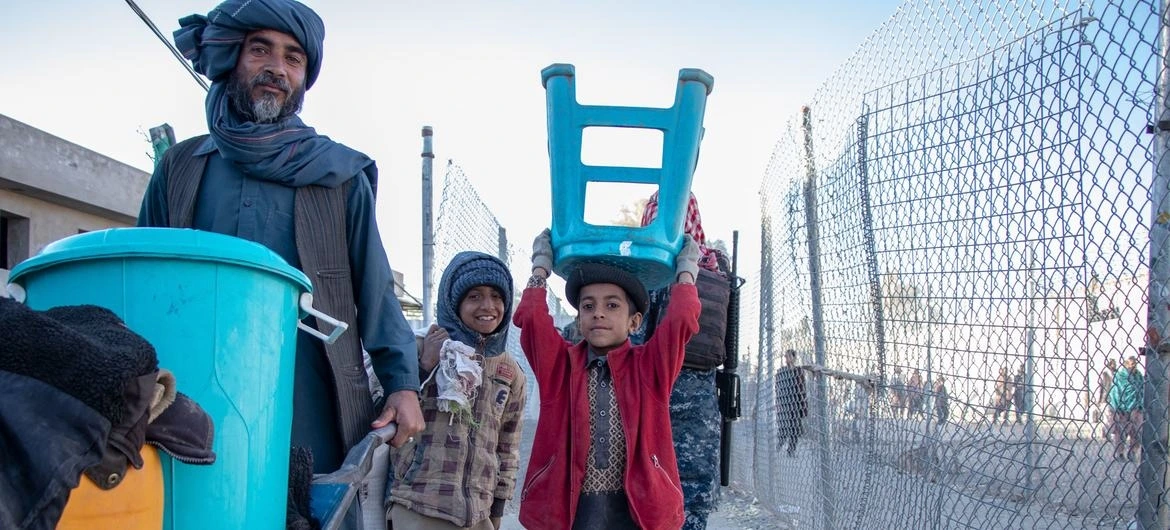18-JULY-2025,03:05PM
In a significant and controversial move, Tajikistan starts the deportation process of Afghan refugees from its territory, with over 150 individuals already repatriated, according to recent reports from regional media and international watchdogs. The move comes as the country’s previously set repatriation deadline nears its end, sparking concern among human rights groups and refugee protection agencies.
This development marks a pivotal shift in Tajikistan’s refugee policy, especially given its strategic location and historical role as a key shelter zone for Afghans fleeing Taliban rule.
Why Tajikistan Starts Deportations Now
Tajikistan Starts : Context Behind the Decision
The deportation process initiated by Tajikistan starts at a time when regional stability is under renewed scrutiny. After months of unofficial detentions and bureaucratic delays, the Tajik government has begun implementing what it refers to as a “phased return plan” for Afghan nationals residing without legal status or whose asylum claims have been rejected.
Officials in Dushanbe claim that the measure aligns with national security interests and immigration laws. However, rights groups argue that many deportees face serious threats upon return to Afghanistan, especially women, journalists, and former government employees.
Tajikistan Starts : More Than 150 Repatriated: What We Know So Far
Tajikistan Starts : Refugees Boarded in Batches
Reports indicate that more than 150 Afghan refugees have been repatriated from Tajikistan over the past two weeks. These individuals were housed in camps and detention centres near the Afghan border in Khatlon and Gorno-Badakhshan regions.
According to local sources, the deportees were primarily from groups whose asylum applications were either pending indefinitely or outright denied. Some refugees reportedly went voluntarily, fearing harsher conditions in Tajik detention centres.
Humanitarian Concerns Escalate as Tajikistan Starts Deportation
Tajikistan Starts : International Agencies Call for Urgent Review
As Tajikistan starts its deportation drive, the international community is voicing concern. The United Nations High Commissioner for Refugees (UNHCR) and Human Rights Watch have urged Tajikistan to halt the process until proper assessments of individual refugee claims are completed.
They stress that “forcible return” violates the principle of non-refoulement under international law, which forbids returning asylum seekers to countries where they face serious threats to life or freedom.
A UNHCR spokesperson noted:
“We are deeply alarmed by the reports. Every case must be individually reviewed, and no refugee should be forcibly returned to danger.”
Afghan Refugees Caught in Diplomatic Crossfire
Pressure Mounting on Regional Neighbours
The geopolitical complexities in Central Asia have left Afghan refugees in a vulnerable position. While Tajikistan starts removals citing internal security priorities, the country is also navigating its relationship with the Taliban-led government in Kabul.
Tajikistan has been one of the few countries in the region to express vocal disapproval of the Taliban regime. Ironically, this has made its recent actions appear contradictory, as many of those being deported are fleeing that very regime.
Political analysts suggest that Dushanbe may be under indirect pressure from neighbouring powers to regulate migration flows or tighten borders amidst fears of radicalisation and illegal trafficking.
Stories from the Ground: Refugees Speak Out
Fear and Uncertainty Dominate Sentiment
Several Afghan nationals living in Tajikistan have come forward, anonymously, to share their fears. Many express concern that they will be targeted upon return to Afghanistan, especially those who worked with NGOs, foreign governments, or served in the Afghan army.
One refugee, a 29-year-old former translator for a UN agency, said:
“I crossed into Tajikistan in hopes of safety. Now I am being sent back to die.”
This sentiment is echoed across refugee communities in Dushanbe and other border towns, where anxiety has spiked since the deportation process began.
How the Global Community is Reacting
Calls for Global Pressure and Immediate Humanitarian Action
As Tajikistan starts deportations in greater numbers, human rights organisations and western governments are urging restraint and reconsideration. Some international actors have begun talks with Tajikistan to offer assistance in processing refugee claims or offering relocation to third countries.
The European Union issued a statement urging Tajikistan to comply with its obligations under international conventions. Similarly, the U.S. State Department noted that “refugee protection is a cornerstone of humanitarian law and policy.”
The Legal Grey Area: Asylum Law in Tajikistan
Gaps in the System
Tajikistan is a signatory to the 1951 Refugee Convention, but its domestic implementation of asylum procedures has been widely criticised. Rights groups report that the country’s refugee processing system is overburdened, under-resourced, and lacking transparency.
The recent deportations expose these systemic gaps. Many asylum seekers claim their applications were never reviewed or that they were held for months without explanation.
Regional Implications of Tajikistan’s Deportation Policy
Domino Effect in Central Asia?
Observers warn that as Tajikistan starts this new deportation wave, other Central Asian nations like Uzbekistan and Turkmenistan might follow suit. With Afghanistan still under Taliban control and little to no international recognition of its regime, refugee movements remain volatile and politically sensitive.
The return of vulnerable populations without proper review could have humanitarian and security consequences, not just for Afghanistan but for the region as a whole.
Conclusion: A Complex Crisis That Demands Global Attention
The fact that Tajikistan starts deporting Afghan refugees marks a critical turning point in the region’s refugee management and humanitarian policy. While the government cites domestic concerns, the lack of adequate processing and the high risk to deportees make the action a serious human rights issue.
It’s a test for the international community to uphold protections for displaced populations and ensure countries like Tajikistan receive the support they need to manage refugee inflows lawfully and humanely.
As deportations continue and anxiety grows among Afghan nationals still residing in Tajikistan, the world must respond — with compassion, diplomacy, and an unwavering commitment to human rights.





